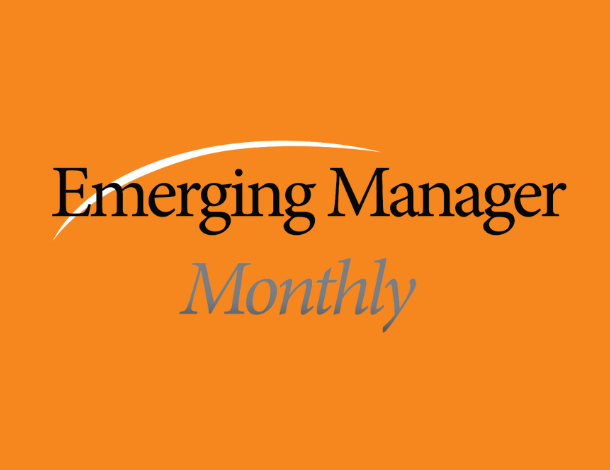An interview in Emerging Manager Monthly. The premier independent news source for the asset management community. Powered by Financial Investment News.
January 7, 2016
Emerging managers in the U.S. may lament the availability of institutional investment opportunities available to them, but it appears their peers north of the border have an even more daunting experience in that area.
“In Canada, we have absolutely nothing. The investment policy statements … they” ll say,
“Okay. You need to have $1 billion or $3 billion in assets under management. ‘Right off the bat they’re basically excluding all emerging managers. That means in Canada almost no money comes to emerging managers,’ said Genevieve Blouin, who founded the Montreal-based Emerging Managers Board. A non-profit organization whose main goals are the promotion and growth of Canadian-based emerging managers as well as the education of asset allocators and investors regarding the benefits of investing with local firms.
‘I wanted to make sure that we change that culture and make people realize that emerging managers are the next rising stars,’ she said.
The nine-member board of the organization, which was founded in 2014. is currently made up of seven emerging manager representatives that are elected by the membership as well a two asset allocator representatives, according to Blouin, who noted that through the formation process the board opted for a structure that would ensure a majority of positions would belong to emerging managers.
Blouin, who serves on the board, realized the necessity of an organization to promote Canadian emerging managers a few years after starting her own hedge fund firm, Altervest, in 2010.
‘I started my business in 2010 and by 2013 I realized the market is completely shot for entrepreneurs in finance here [Canada] … so that’s why I thought about creating the Emerging Managers Board. Even myself when I created it, I thought I’m a woman in finance, I own my business. I thought I knew basically all the guys in finance,’ said Blouin, admitting that she knew less of the makeup of Quebec” s emerging manager landscape than she initially anticipated. I thought I knew everyone and at the time it was something like 17 out of 35 managers. I told myself if I don’t know everybody we have to make it very accessible for asset allocators to find us. “
The board has been effective in promoting its message to and garnering interest from emerging managers as its membership includes 50 of the roughly 55 emerging manager firms located in the Quebec Province, according to Blouin. Membership for firms stands at $100 per year.
‘The goal is not to make money with this. The goat is to get managers to be known by the population and by asset allocators, Blouin said.
The membership dues are supplemented by a minimal fee for marketing and workshop events held by the board, according to Blouin. The board employs one full-time director position and pays for an accounting firm to review its financial statements, but a majority of board participation is done pro bono.
The volunteer efforts and affordable membership fees seem to prove valuable resources for the board’s membership as 50% of those firms handle less than 10 million in assets, according to Blouin, estimating it generally takes Canadian firms an average of seven-to-10 years to reach $100 million. She added that only 15 of the current members have assets under management of more than $100 million.
Sponsorship has been the lifeblood of the Emerging Managers Board, according to Blouin, who notes that while sponsors are certainly providing monetary assistance for the benefit of emerging managers, they are also investing in and networking with potential long-term partners,
“They do want to help emerging managers.” Blouin said of the board’s sponsors. ‘They like the idea, but second, if I were a business I would sponsor the EMB. Some firms are going to emerge and if you’re going to spend marketing dollars these are going to become your clients. Especially for lawyers or auditors, if you establish a relationship, a manager won’t want to change that vendor every year. If you come in early and they grow big, you basically have that client. They have access to potential future clients that may become big.
That its member firms grow and prosper is the ultimate goal of the Emerging Managers Board, and changing the attitudes of Canadian investors to provide greater inclusion of manager consideration will be arguably the most important and difficult obstacle to be faced.
“It’s trying to have emerging manager programs at these larger institutions: said Charles Lemay, who came on in the summer to assist the board in marketing and currently serves as head of global business development for newly formed RVX Asset Management. “It makes sense on so many levels and we’ re hoping it will lead to something meaningful. Sometimes people are set in their ways and if everything works and everything” s cushy. Why change the status quo? Lemay added that a significant responsibility the EMB has taken on is the education of Canadian institutions regarding what some U.S. investors already have from an emerging manager program standpoint.
There appears to be progress on changing the status quo as 12 EMB members recently won mandates across various asset classes as part of a $300 million fund-of-funds established by the new Quebec Emerging Managers Programme (PGEQ), a nonprofit organization created by Vital Proulx, founder of Hexavest, and Stephane Corriveau, founder of Alpha Fixe, with the intention of promoting the investment of assets in local and emerging managers. The PGEQ” s first venture is made up of smaller institutional investors in the province.
While the two organizations serve as separate entities, their similar mission allowed for the PGEQ to utilize the EMB for researching and sourcing emerging managers in the space, according to Blouin.
Blouin has been thrilled by the development of the PGEQ as well as the initial fund-of-funds offering announced in October, noting that its success could potentially lead to an additional $100 million to $200 million in allocations to emerging managers per year moving forward, which would help the EMB in its own goal of helping to raise $3 billion in assets for emerging manager firms.
While changing Canadian institutional investors’ attitudes remains a long-term mission for the board, marketing to international audiences is also a strategy the board is pursuing. Both Blouin and Lemay point to the U.S. as a market Canadian firms should be unafraid of attempting to tap into.
“I think the U.S. has a way bigger market,” Blouin said. “The financial sector is bigger and Canadians tend to be very conservative and as a result the products that are sold in Canada are way less sophisticated than in the U.S. By definition emerging managers tend to be more innovative and develop products that are different than normally bought in Canada. When we go to the States it” s a bit of a relief. People are more open-minded and willing to invest in things that are different.”
With the talent making up emerging manager firms in Canada and the desirable returns they are capable of producing, Blouin and the Emerging Managers Board are simply looking for a shot to prove the mettle of smaller firms to Canadian institutional investors and beyond.
“If we’re mediocre or not performing I’m not saying to invest with us, but I think not reinvesting in local talent is kind of killing it. We [emerging managers] are just not on the starting line. At least look at us and put us up there with the others and let the better runner win.-
More information available here

